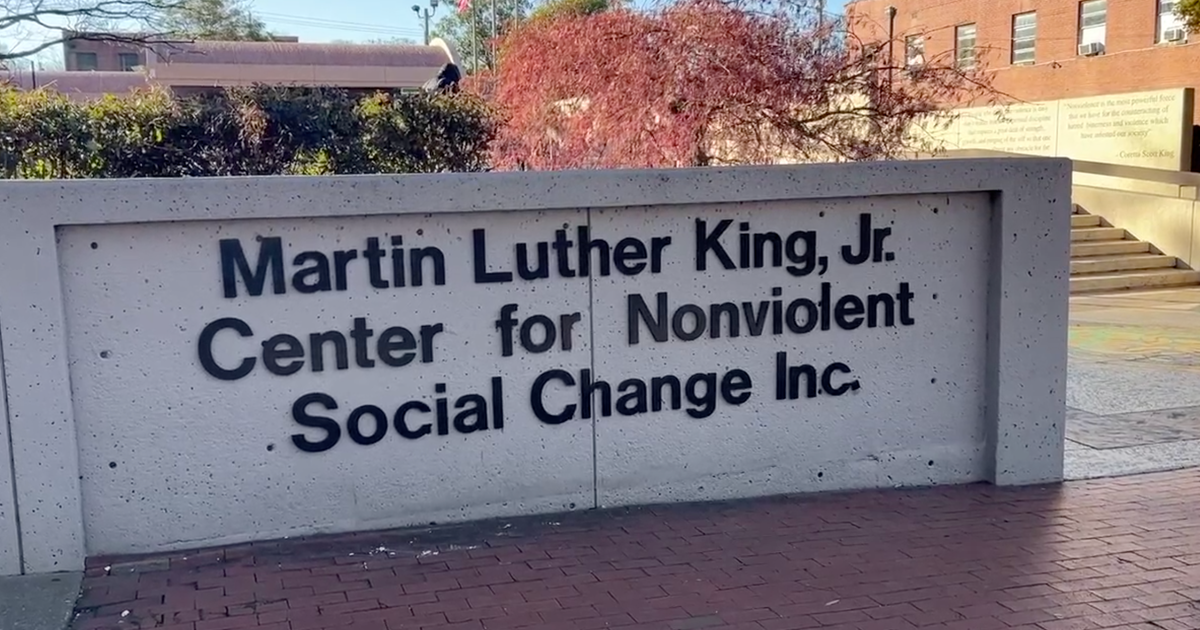U.S. reverses Trump-era restrictions on asylum cases based on domestic and gang violence
Attorney General Merrick Garland on Wednesday reversed legal opinions issued under the Trump administration that severely restricted asylum claims based on domestic and gang violence, as well as persecution stemming from family ties.
In vacating the decisions issued by his predecessors, Jeff Sessions and William Barr, Garland cited an executive order by President Biden that instructed officials to determine whether current asylum policies provide refuge to victims of gang and domestic violence "in a manner consistent with international standards."
The rescission of the restrictions could pave the way for a broad shift in U.S. asylum policy, since many of the protection claims made by Central American migrants along the southern border cite domestic and gang violence, which are prevalent in some parts of the region.
Over four years, the Trump administration enacted multiple rules, programs and international agreements to restrict access to the U.S. asylum system at the southwest border, arguing that most Central Americans journeying north were economic migrants ineligible for U.S. humanitarian protection.
Mr. Biden, however, decried Mr. Trump's asylum policies as cruel and vowed to restore protections for victims of domestic and gang violence.
As attorney general, Garland oversees the Justice Department's immigration courts and their 1.3 million pending cases. Through precedent-setting decisions, the attorney general also has the power to unilaterally set rules that govern the adjudication of asylum cases being reviewed by U.S. immigration judges and asylum officers.
In a memo explaining Wednesday's move, Associate Attorney General Vanita Gupta said Garland's rulings would allow the Biden administration to address "complex and important questions" concerning U.S. asylum through formal regulations open to public comments.
Mr. Biden has given the Departments of Justice and Homeland Security until October to finish the rules, which are expected to overhaul the adjudication of asylum claims.
"These decisions involve important questions about the meaning of our Nation's asylum laws, which reflect America's commitment to providing refuge to some of the world's most vulnerable people," Gupta wrote.
In a 2018 opinion revoked on Wednesday, Sessions ruled that cases "pertaining to domestic violence or gang violence perpetrated by non-governmental actors" would generally not merit asylum.
Sessions decreed that "private" criminal activity was not a basis for asylum, barring "exceptional circumstances." The decision reversed a 2014 appellate opinion that found women who suffered domestic violence could be eligible for asylum under the "particular social group" protection in U.S. law.
To qualify for asylum, U.S. law dictates that applicants must demonstrate they suffered persecution because of their race, nationality, political views, religion or membership in a "particular social group."
Garland said Sessions' opinion included "broad language" that threatened the "careful case-by-case adjudication of asylum claims."
In the other opinion that Garland overruled on Wednesday, Barr ruled that a nuclear family, "in the ordinary case," would not constitute a "particular social group," dooming the cases of asylum-seekers who claimed their persecution stemmed from being part of a family.
Garland on Wednesday said Barr's analysis in 2019 was "inconsistent" with previous rulings that found families could be particular social groups.
The 2019 guidance U.S. Citizenship and Immigration Services (USCIS) asylum officers received in the wake of Barr's opinion was revoked last month, according to an internal memo obtained by CBS News.
USCIS did not say whether asylum officers have received new guidance regarding the adjudication of claims concerning victims of domestic and gang violence.
The asylum regulations Mr. Biden has ordered officials to craft by the fall are supposed to define "particular social group."
In her memo, Gupta ordered Justice Department lawyers to stop defending the Trump-era asylum restrictions in lawsuits filed by immigrant advocates.
Gene Hamilton, a former Justice Department official who oversaw some of the Trump administration's most consequential immigration policies, accused Garland of upending asylum law, saying Wednesday's rulings would lead migrants to file "meritless" applications for U.S. protection.
"The Attorney General's decision today will cause unprecedented damage to the security of the southern border and the integrity of our immigration system," said Hamilton, who is now the vice president of American First Legal, a group promoting conservative causes. "Generalized crime in other countries has never been a legitimate basis for asylum under the laws passed by Congress."
Conchita Cruz, an attorney who has represented women fleeing domestic violence, praised Garland's move, saying some asylum-seekers were deported due to the Trump-era legal opinions. Cruz said one of her clients, a mother who suffered domestic violence in Honduras, was denied asylum during the Trump administration by a judge who cited Sessions' 2018 opinion.
"We should be allowing these asylum-seekers to stay," Cruz, who co-founded the Asylum Seeker Advocacy Project, told CBS News. "They are absolutely seeking safe haven from very real persecution."
Her asylum-seeking client, Maribel, is currently appealing the judge's initial decision. She hopes Garland's decision will allow her to remain in the U.S.
"I know it is going to change my life, and the life of so many women who, like me, are survivors of domestic abuse," Maribel said. "I can rest more easily now knowing that my children and I have a chance to get justice and be safe from deportation back to my abuser."
Clare Hymes contributed to this report.






